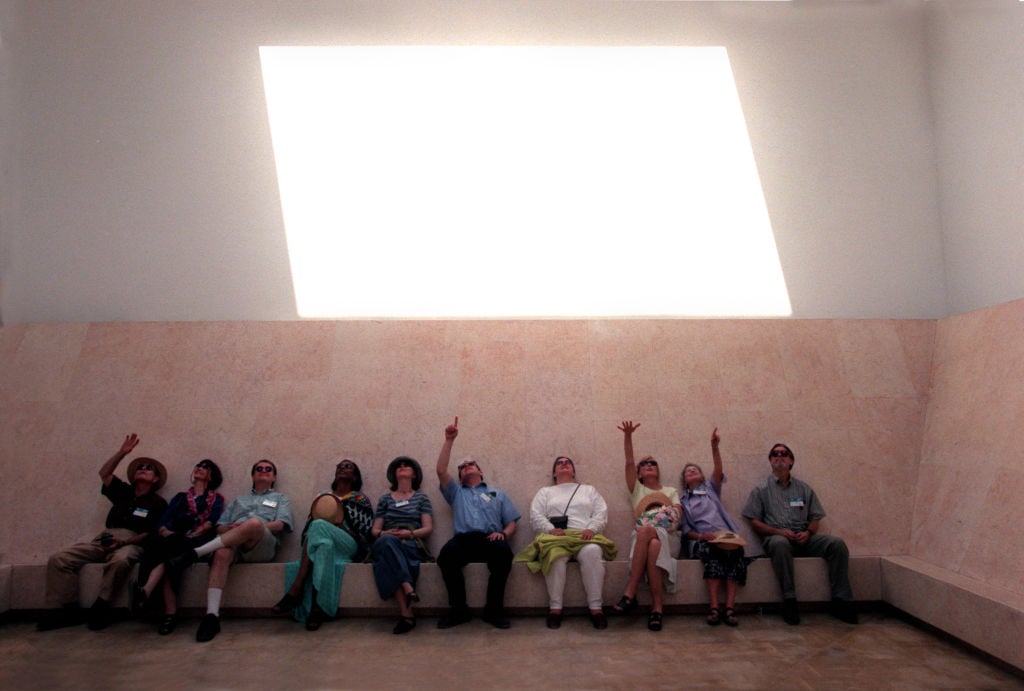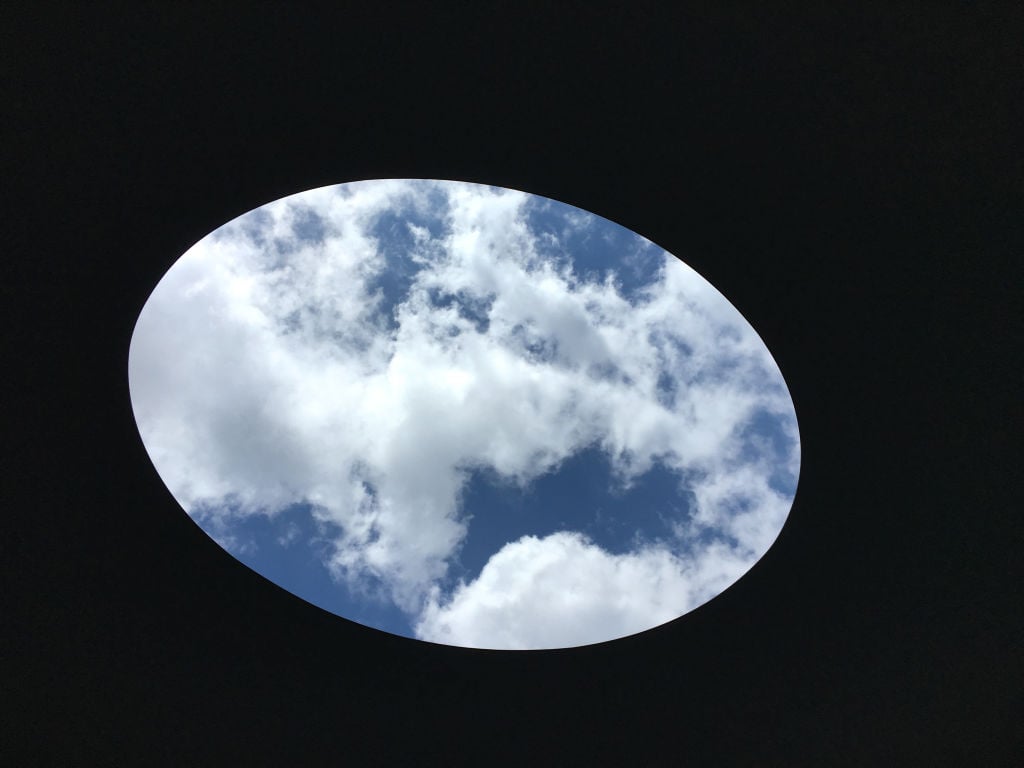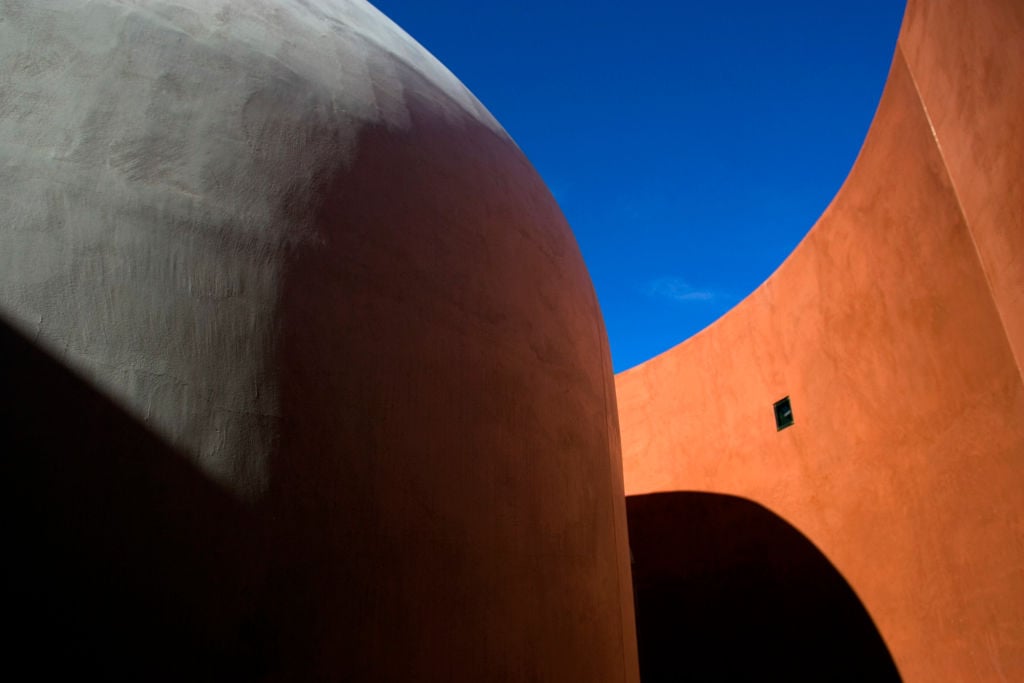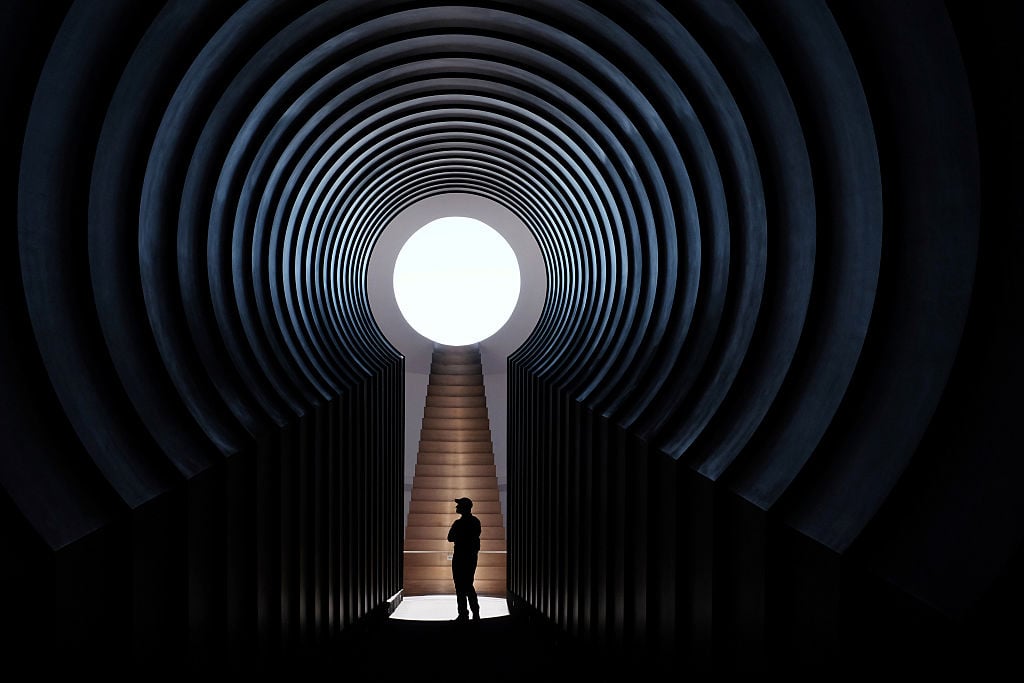Art World
Here Are 13 Awe-Inspiring James Turrell Skyspaces Around the World That Don’t Get Enough Attention, and What Makes Each One Unique
Every Skyscape offers its own enchantments, even though a lot of the same ones get repeated exposure.

Every Skyscape offers its own enchantments, even though a lot of the same ones get repeated exposure.

Vittoria Benzine

Life moves fast, and James Turrell thinks we should slow down and absorb the miracles at hand. Pure light unites the diversity of Turrell’s work, from architectural light installations to luminous rooms that dissolve depth perception.
However, California-born and Arizona-based Turrell is perhaps best known for his Skyspace, powerful Minimalist experiences of Turrell’s own design, all centered around apertures that frame the shifting sky.
“With no object, no image and no focus, what are you looking at?” Turrell asks. “You are looking at you looking. What is important to me is to create an experience of wordless thought.”
Started in 1974, the Skyspace series has grown to include nearly 90 unique installations around world. Most recently, Turrell unveiled one in Green Mountain Falls, Colorado, his first-ever built into a mountain in the United States. There’s another Skyspace slated for Kansas City in 2024.
The Sydney Morning Herald put it best: Turrell’s works “are dull to describe but magical to experience firsthand.” Every Skyspace offers its own enchantment, even though a lot of the same ones get repeated exposure. So in an effort to dig deeper, we’ve perused some deep a tour into the Skyspace phenomenon.

The Color Inside by James Turrell in Austin, Texas. (Photo by George Rose/Getty Images)
Where: Israel Museum, Jerusalem
Completed: 1992
What to Know: Although this is the fifth installment in the Skyspace series, it’s the earliest full-sized specimen open to the public. The work enfolds a “shrine-like inner space,” according to the museum, in warm concrete and limestone walls crowned by a rectangular cut out discerning the shifting sky.
Where: University of Illinois, Chicago
Completed: 2005
What to Know: Many of Turrell’s Skyspaces are either in private collections, require tickets, or feature security details. But this work, sometimes called the UIC Skyspace, is apparently the only one in the world that’s always accessible to the public.
Where: Live Oak Friends Meeting House, Houston
Completed: 2001
What to Know: This work, a functioning Quaker Meeting House, is special in part because more than most other works, it reflects Turrell’s deep theological interests and background.
Where: Rice University, Houston
Completed: 2012
What to Know: This seemingly weightless pyramidal structure of grass, concrete, stone, and composite steel has an integrated acoustic system built into it so that up to 120 guests can enjoy musical performances alongside two daily LED light cycles at sunrise and sunset.

James Turrell, The Skyspace, commissioned artwork for the de Young Museum in San Francisco and unveiled in2005. (Photo By Carlos Avila Gonzalez/The San Francisco Chronicle via Getty Images)
Where: Walker Art Center, Minneapolis
Completed: 2005
What to Know: Even without special effects, Turrell’s work still thrills. Quietly nestled into in the Twin Cities, its entrance would be easy to miss, suggesting how much quietude is a central focus of Turrell’s work.
Where: Jardín Botánico Culiacán, Culiacán, Mexico
Completed: 2015
What to Know: The artist’s first public Skyspace in Latin America is also his most campy: shaped like a UFO, it appears to be landing atop a grassy mound.
Where: Pomona College, Claremont, California
Completed: 2007
What to Know: The artist’s alma mater, where he earned an undergraduate degree in perceptual psychology in 1965, is the site of one of his most classically beautiful Skyspaces. A square canopy shades viewers around a central pool that reflects the sky, translating light into an LED show that cycles from goldenrod to turquoise with the sunrise and sunset.
Where: Stonescape, Napa Valley
Completed: 2005
What to Know: To reach Stone Sky, visitors must take a full dip in an adjacent swimming pool, providing for quite the sensory experience.

LACMA director Michael Govan inside the Roden Crater outside Prescott, Arizona, on September 20, 2015. (Photo by Bonnie Jo Mount/The Washington Post via Getty Images)
Where: National Gallery of Australia, Canberra
Completed: 2010
What to Know: This complex, angular Skyspace is a square-based pyramid with soft red ochre interiors that houses the viewing chamber, a stupa of Victorian basalt with an open roof. The room glows in reflected, bright blue water and is anchored by a central moonstone that mimics the shape of the oculus above.
Where: Tokamachi, Japan
Completed: 1997
What to Know: Commissioned for the first edition of the Echigo-Tsumari Art Triennial, Turrell drew inspiration for this structure from Junichiro Tanizaki’s essay “In Praise of Shadows.”
Where: MASS MoCA, North Adams, Massachusetts
Completed: 2021
What to Know: This 40-by-40 foot repurposed concrete tank marks Turrell’s largest freestanding circular Skyspace to date and opens twice daily at dawn and dusk.
Where: Kielder Water, Northumberland, UK
Completed: 2000
What to Know: This simple circular Skyspace on a rocky outcropping strikes a compelling contrast with its pastoral setting. At night, Turrell’s recently renovated light display kicks in, filling the humble brick structure with otherworldly hues.
Where: James Turrell Museum, Bodega Colomé, Salta, Argentina
Completed: 2002
What to Know: At the only museum in the world dedicated entirely to his work, Turrell created what is allegedly the world’s largest Skyspace, empowering new levels of illusion.